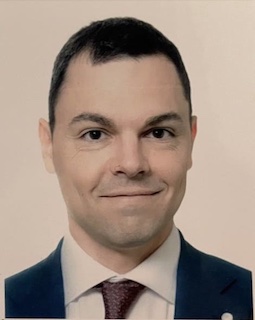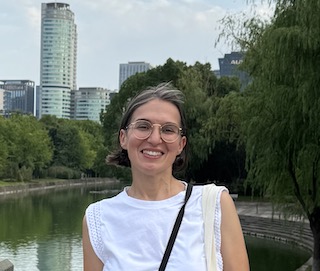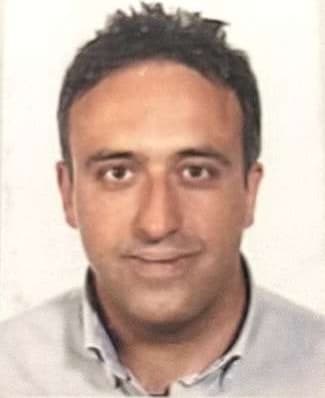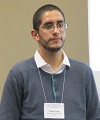Studying at the University of Verona
Here you can find information on the organisational aspects of the Programme, lecture timetables, learning activities and useful contact details for your time at the University, from enrolment to graduation.
Academic calendar
The academic calendar shows the deadlines and scheduled events that are relevant to students, teaching and technical-administrative staff of the University. Public holidays and University closures are also indicated. The academic year normally begins on 1 October each year and ends on 30 September of the following year.
Course calendar
The Academic Calendar sets out the degree programme lecture and exam timetables, as well as the relevant university closure dates..
| Period | From | To |
|---|---|---|
| I semestre (Lingue e letterature straniere) | Sep 27, 2021 | Jan 8, 2022 |
| Annuale (Lingue e letterature straniere) | Sep 27, 2021 | May 28, 2022 |
| II semestre (Lingue e letterature straniere) | Feb 14, 2022 | May 28, 2022 |
| Session | From | To |
|---|---|---|
| ESAMI LINGUE - sessione invernale | Jan 10, 2022 | Feb 12, 2022 |
| ESAMI LINGUE - sessione estiva | May 30, 2022 | Jul 23, 2022 |
| ESAMI LINGUE - sessione autunnale | Aug 29, 2022 | Sep 24, 2022 |
| Session | From | To |
|---|---|---|
| LAUREE LINGUE - sessione autunnale (a.a. 2020-2021) | Nov 8, 2021 | Nov 13, 2021 |
| LAUREE LINGUE - sessione straordinaria (a.a. 2020-2021) | Mar 28, 2022 | Apr 2, 2022 |
| LAUREE LINGUE - sessione estiva (a.a. 2021-2022) | Jul 11, 2022 | Jul 16, 2022 |
Exam calendar
Exam dates and rounds are managed by the relevant Foreign Languages and Literatures Teaching and Student Services Unit.
To view all the exam sessions available, please use the Exam dashboard on ESSE3.
If you forgot your login details or have problems logging in, please contact the relevant IT HelpDesk, or check the login details recovery web page.
Academic staff
 daniele.caccin2@unibo.it
daniele.caccin2@unibo.it
 silvia.cavalieri@univr.it
silvia.cavalieri@univr.it
 piero.costaleon@univr.it
piero.costaleon@univr.it
 elisa.dallarosa@univr.it
elisa.dallarosa@univr.it
 dunia.houranimartin@univr.it
dunia.houranimartin@univr.it
 wenwen.huang@univr.it
wenwen.huang@univr.it
 neliana.orlandi@univr.it
neliana.orlandi@univr.it
 sara.paolini@univr.it
sara.paolini@univr.it
 elena.rango@univr.it
elena.rango@univr.it
 cecilia.sideri@univr.it
cecilia.sideri@univr.it
 tania.triberio@univr.it
tania.triberio@univr.it
Study Plan
The Study Plan includes all modules, teaching and learning activities that each student will need to undertake during their time at the University.
Please select your Study Plan based on your enrollment year.
1° Year
| Modules | Credits | TAF | SSD |
|---|
1ST FOREIGN LANGUAGE2ND FOREIGN LANGUAGE1ST FOREIGN LITERATURE AND CULTUREGerman literature and culture 1
1ST FOREIGN LITERATURE AND CULTUREGerman literature and culture 1
2° Year activated in the A.Y. 2022/2023
| Modules | Credits | TAF | SSD |
|---|
1ST FOREIGN LANGUAGE2ND FOREIGN LANGUAGE1ST FOREIGN LITERATURE AND CULTURE OR A RELATED COURSEEnglish literature and culture 2
French literature and culture 2
German literature and culture 2
Spanish literature and culture 2
2ND FOREIGN LITERATURE AND CULTURE OR A RELATED COURSEEnglish literature and culture 2
French literature and culture 2
German literature and culture 2
Spanish literature and culture 2
Geography of communication and international trade
Italian literature and culture
Modern and Contemporary Economic History
Theory and Techniques of communication
3° Year activated in the A.Y. 2023/2024
| Modules | Credits | TAF | SSD |
|---|
1ST FOREIGN LANGUAGE2ND FOREIGN LANGUAGEComparative and European Public law
Principles of international marketing
| Modules | Credits | TAF | SSD |
|---|
1ST FOREIGN LANGUAGE2ND FOREIGN LANGUAGE1ST FOREIGN LITERATURE AND CULTUREGerman literature and culture 1
1ST FOREIGN LITERATURE AND CULTUREGerman literature and culture 1
| Modules | Credits | TAF | SSD |
|---|
1ST FOREIGN LANGUAGE2ND FOREIGN LANGUAGE1ST FOREIGN LITERATURE AND CULTURE OR A RELATED COURSEEnglish literature and culture 2
French literature and culture 2
German literature and culture 2
Spanish literature and culture 2
2ND FOREIGN LITERATURE AND CULTURE OR A RELATED COURSEEnglish literature and culture 2
French literature and culture 2
German literature and culture 2
Spanish literature and culture 2
Geography of communication and international trade
Italian literature and culture
Modern and Contemporary Economic History
Theory and Techniques of communication
| Modules | Credits | TAF | SSD |
|---|
1ST FOREIGN LANGUAGE2ND FOREIGN LANGUAGEComparative and European Public law
Principles of international marketing
| Modules | Credits | TAF | SSD |
|---|
Legend | Type of training activity (TTA)
TAF (Type of Educational Activity) All courses and activities are classified into different types of educational activities, indicated by a letter.
Russian literature and culture 2 (2022/2023)
Teaching code
4S002915
Teacher
Credits
9
Language
Russian
Scientific Disciplinary Sector (SSD)
L-LIN/21 - SLAVIC STUDIES
Period
I semestre (Lingue e letterature straniere) dal Sep 26, 2022 al Dec 23, 2022.
Learning objectives
At the end of the course students are expected to: 1) know the most important moments and the main peculiarities of the Russian History, as well as the essential elements of 20thcentury ; 2) apply the acquired knowledge to the analysis of the literary works presented during the classes, with the help of the provided critical references; 3) have the ability to formulate autonomous judgments about the main themes of the course, and to explain them in a correct and coherent form.
Prerequisites and basic notions
Before taking this exam students must have previously passed the following exams: Russian culture and literature 1 and Russian language 1.
Program
«Rivoluzione, utopia e totalitarismo nella letteratura e nella cultura russa del XX secolo»
Il corso prevede un approfondimento storico iniziale, finalizzato a fornire le nozioni necessarie all’interpretazione delle complesse dinamiche socio-culturali che caratterizzano il Novecento russo. Particolare attenzione sarà riservata all’attività di agitazione e di propaganda che dal 1917 ha visto il talento di molti artisti porsi a servizio della grande utopia. I testi letterari presi in esame tracciano un percorso che muove dal magmatico caos di inizio secolo, prosegue nel tempo dell’entusiasmo rivoluzionario e in quello del compromesso (NEP), per poi inoltrarsi nelle manifestazioni della violenza del potere totalitario, che nell’universo concentrazionario trovano l’espressione più tragica.
Opere (in qualsiasi traduzione integrale italiana o in russo):
A. BELYJ, Pietroburgo (Петербург)
A. BLOK, I dodici (Двенадцать)
V. MAJAKOVSKIJ, Scelta di poesie; Chiedo la parola (Прошу слова, sulla creazione delle Okna ROSTA)
E. ZAMJATIN, Racconti
M. BULGAKOV, Cuore di cane (Собачье сердце)
V. ŠALAMOV, I racconti di Kolyma (Колымские рассказы)
V. GROSSMAN, Vita e destino (Жизнь и судьба)
Testi di riferimento:
AA.VV., Storia della letteratura russa. Il Novecento, Torino, Einaudi 1989-1991 (una selezione di saggi su indicazione della docente)
G.P. Piretto, Quando c’era l’URSS. 70 anni di storia culturale sovietica, Milano, Raffaello Cortina Editore, 2018 (alcune sezioni su indicazione della docente)
P. Buskovitch, Breve storia della Russia. Dalle origini a Putin, Torino, Einaudi, 2013 (i capitoli relativi al periodo preso in esame)
Altri materiali bibliografici saranno indicati dalla docente nel corso delle lezioni.
Didactic methods
Teaching methods: frontal classes. The classes will include reading and analysis of excerpts in Russian from the literary works in the programme.
Learning assessment procedures
Final oral exam.
Evaluation criteria
The evaluation will consider the following aspects:
- the possession of the historical, cultural and literary notions dealt with during the course
- the ability to orient oneself in the different areas of Russian History and Literature
- the ability to make a critical analysis of the literary works with particular attention to the quality of personal rework
- the autonomy in organizing the speech and a proper use of the language.
Exam language
Italiano Russo
Type D and Type F activities
Nei piani didattici di ciascun Corso di studio è previsto l’obbligo di conseguire un certo numero di CFU di tipologia D e di tipologia F.
CFU D (attività a scelta dello studente)
I CFU D possono essere acquisiti mediante:
- insegnamenti non obbligatori nel proprio piano didattico (previa approvazione del Presidente del Collegio didattico per insegnamenti non selezionabili in autonomia)
- attività accreditate dal Collegio didattico
- competenze linguistiche (diverse o ulteriori) rispetto a quelle obbligatorie
- tirocini o stage
- TALC (competenze trasversali).
Competenze trasversali TALC
Nota bene: i corsi TALC sono riconosciuti solo come CFU D.
Il numero di CFU D va calcolato complessivamente sull’intero triennio/biennio e non è legato all'annualità.
CFU F
I CFU F sono solitamente relativi ad abilità informatiche, competenze linguistiche, stage e tirocini e ulteriori attività formative accreditate in questa tipologia dal Collegio Didattico.
Nel corso di laurea in Lingue e culture per il turismo e il commercio internazionale sono previste le seguenti tipologie:
- 3 CFU per terza lingua (livello B1)
- 3 CFU per informatica
- 6 CFU per stage obbligatorio.
Le competenze informatiche possono essere acquisite attraverso:
- il superamento della prova pratica presso le aule informatiche di Ateneo,
- la frequenza dei corsi attivati da scuole e centri accreditati dall’AICA (Associazione Italiana per l’Informatica e il Calcolo Automatico) o riconosciuti dalla Provincia e dalla Regione e superamento della relativa prova finale. Le domande per il riconoscimento delle competenze informatiche acquisite precedentemente vengono esaminate dalla Commissione per il riconoscimento delle Competenze Informatiche.
Le attività di stage sono finalizzate a far acquisire allo studente una conoscenza diretta in settori di particolare utilità per l’inserimento nel mondo del lavoro e per l’acquisizione di abilità specifiche d’interesse professionale.
Documents and news
-
 Domanda di riconoscimento crediti su certificazioni esterne di abilità-competenze informatiche
(pdf, it, 524 KB, 16/06/21)
Domanda di riconoscimento crediti su certificazioni esterne di abilità-competenze informatiche
(pdf, it, 524 KB, 16/06/21)
| years | Modules | TAF | Teacher |
|---|---|---|---|
| 1° 2° 3° | Introduction to robotics for humanities students | D |
Paolo Fiorini
(Coordinator)
|
To discover all the teaching activities accredited by the foreign teaching college click here
Career prospects
Module/Programme news
News for students
There you will find information, resources and services useful during your time at the University (Student’s exam record, your study plan on ESSE3, Distance Learning courses, university email account, office forms, administrative procedures, etc.). You can log into MyUnivr with your GIA login details: only in this way will you be able to receive notification of all the notices from your teachers and your secretariat via email and also via the Univr app.
Student login and resources
Gestione carriere
Attendance and location
Attendance is not mandatory.
More detailed information on attendance requirements, please refer to the “Regolamento del corso di studio”, available under the “Regolamenti” section in “Il Corso”. While the Student Handbook does not require mandatory attendance, it is recommended to confirm specific attendance policies with your professors for each course, lab, or practical training.
Part time enrolment is an option. For more information, visit the Possibilità di iscrizione Part time.
Classrooms and exam locations are:
Classes and exams are held at the following locations:
- Polo Zanotto (close to the Foreign Languages and Literatures building)>
- Polo Santa Marta
Assegnazione tutore
Attività accreditate D/F
Calendario didattico dettagliato
Curricular Language Change
Competenze informatiche
Competenze linguistiche (prima e seconda lingua)
Competenze linguistiche in triennale (terza lingua CFU F)
Compilazione del piano didattico
Corso di Lingua catalana a.a. 2024-25
Corso di Lingua portoghese
Erasmus+ e altre esperienze all'estero
Linguistic training CLA
Presentazione dei corsi di studio e Open day
Graduation
Saperi minimi
Internships and apprenticeships - Foreign Languages and Literatures
Internships and apprenticeships
A mandatory internship period (6 CFUs) within business organizations is included in the study plan for the Bachelor’s degree in Languages and Cultures for Tourism and International Commerce (L12).
The internship is designed to provide students with practical experience in areas relevant to their future professional careers and to help them acquire specific professional skills.
Internship activities are conducted under the direct supervision of an individual lecturer and take place at professional firms, public administration offices, and companies accredited by the University of Verona.
Credits earned through internship activities will be awarded in accordance with the detailed provisions of the current “Regolamento d’Ateneo per il riconoscimento dei crediti maturati negli stage universitari” (University Regulations for the Recognition of Credits Accrued in University Internships).
- Information for prospective students about internships can be found at Stage e tirocini.
- Information for enrolled students is available on MyUnivr - come fare per - stage e tirocini.
- Information for companies regarding internships can be found at Stage e tirocini per azienze.
For more details, please visit the following link https://www.univr.it/it/i-nostri-servizi/gestione-carriere-studenti-lingue-e-letterature-straniere/stage-e-tirocini-lingue-e-letterature-straniere

 +39 045802 8409
+39 045802 8409






















































